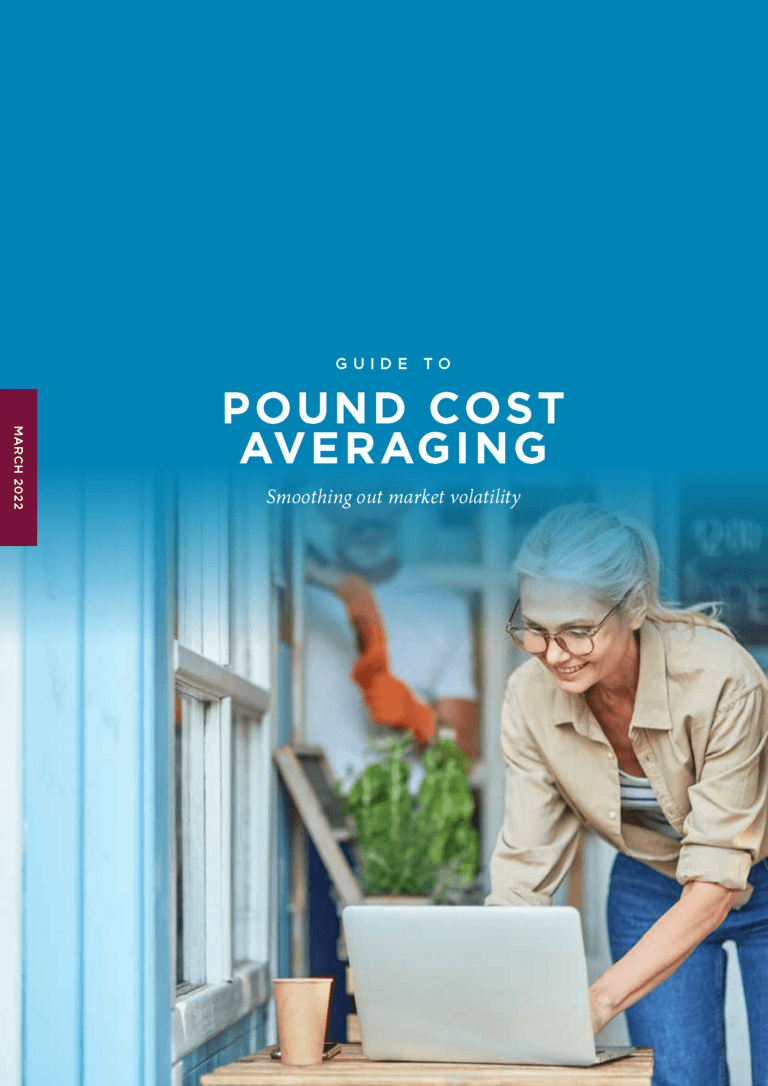What will your legacy look like?
Intergenerational planning helps you put financial measures in place to benefit your children later in life, and even your future grandchildren, but it’s important to start planning early.
You may want to keep an element of control when passing on your assets. You may want your money to be used for a particular reason, such as paying for school or university fees or for a first property deposit. Or you may just want to make sure your money stays within the family.
When you pass away
Without appropriate provision, Inheritance Tax could become payable on your taxable estate that you leave behind when you pass away. Your taxable estate is made up of all the assets that you owned, the share of any assets that are jointly owned, and the share of any assets that pass automatically by survivorship. Careful planning can reduce or even eliminate the Inheritance Tax payable.
Inheritance Tax is not payable on the first part of the value of your estate – the ‘nil-rate band’. The current 2021/22 nil-rate band is £325,000. If the total value of your estate does not exceed the nil-rate band, no Inheritance Tax is payable. Outstanding debts and funeral expenses can be deducted from the value of your estate.
Interest in the family home
An additional ‘residence nil-rate band’ (RNRB) allowance was introduced in 2017 and is available if you leave your interest in the family home to direct descendants (such as children, step-children and/or grandchildren). This can apply to any individual property that has been your main residence at some time and can be available even if that home had been sold after 7 July 2015.
For the 2021/22 tax year, the maximum RNRB additional allowance is £175,000, potentially increasing your total Inheritance Tax allowance to £500,000 (£1,000,000 for a married couple).
There are legitimate ways to plan to reduce the amount of Inheritance Tax you may have to pay. We can advise you on the ways that you may mitigate any exposure, including these:
Make a Will
Dying intestate, or dying without a Will, means that you may not be making the most of the Inheritance Tax exemption that exists if you wish your estate to pass to your spouse or registered civil partner. For example, if you don’t make a Will, then relatives other than your spouse or registered civil partner may be entitled to a share of your estate, and this might trigger an Inheritance Tax liability.
Make lifetime gifts
Non-exempt gifts made more than seven years before the donor dies are free of Inheritance Tax. Exempt gifts are immediately out of the donor’s estate. So, it might be appropriate to pass on some of your wealth while you are still alive. This will reduce the value of your estate when it is assessed for Inheritance Tax purposes, and there is no limit on the sums you can pass on.
You can gift as much as you wish to other individuals or bare trusts with no immediate inheritance tax issue. This type of gift is known as a ‘Potentially Exempt Transfer’ (PET). If you live for seven years after making such a gift, then it will be exempt from Inheritance Tax, but should you be unfortunate enough to die within seven years, then it will still be counted as part of your estate.
However, if the PET is above your nil rate band, the longer you survive after making the gift (subject to surviving over three years), the lower the Inheritance Tax charge on the recipient of the gift:
- If you survive between three to four years from the date of the gift, the Inheritance Tax charge on the gift is reduced by 20%
- If you survive between four to five years from the date of the gift, the Inheritance Tax charge on the gift is reduced by 40%
- If you survive between five to six years from the date of the gift, the Inheritance Tax charge on the gift is reduced by 60%
- If you survive between six to seven years from the date of the gift, the Inheritance Tax charge on the gift is reduced by 80%
You need to be careful if you are giving away your home to your children with conditions attached to it, or if you give it away but continue to benefit from it. This is known as a ‘Gift with Reservation of Benefit’ and isn’t effective for Inheritance Tax purposes.
Leave a proportion to charity
Being generous to your favourite charity can reduce your tax bill. As well as the gift itself being exempt from Inheritance Tax, if you leave at least 10% of your net estate to a charity or number of charities, then your Inheritance Tax liability on the taxable portion of the estate is reduced to 36% rather than 40%.
Set up a trust
As part of your Inheritance Tax planning, you may want to consider putting assets in trust – either during your lifetime or under the terms of your Will. Putting assets in trust – rather than making a direct gift to a beneficiary – can be a more flexible way of achieving your objectives.
Family trusts can be useful as a way of reducing Inheritance Tax, making provision for your children and spouse, and potentially protecting family businesses. Trusts enable the donor to control who benefits (the beneficiaries) and under what circumstances, sometimes long after the donor’s death.
Compare this with making a direct gift (for example, to a child), which offers no control to the donor once given. When you set up a trust, it is a legal arrangement and you will need to appoint ‘trustees’ who are responsible for holding and managing the assets. Trustees have a responsibility to manage the trust on behalf of and in the best interest of the beneficiaries, in accordance with the trust terms. The terms will be set out in a legal document called ‘the trust deed’.
INFORMATION IS BASED ON OUR CURRENT UNDERSTANDING OF TAXATION LEGISLATION AND REGULATIONS.
ANY LEVELS AND BASES OF, AND RELIEFS FROM, TAXATION ARE SUBJECT TO CHANGE.
Content of the articles featured in this publication is for your general information and use only and is not intended to address your particular requirements or constitute a full and authoritative statement of the law. They should not be relied upon in their entirety and shall not be deemed to be, or constitute advice. Although endeavours have been made to provide accurate and timely information, there can be no guarantee that such information is accurate as of the date it is received or that it will continue to be accurate in the future. No individual or company should act upon such information without receiving appropriate professional advice after a thorough examination of their particular situation. We cannot accept responsibility for any loss as a result of acts or omissions taken in respect of any articles. For more information please visit www.goldminemedia.co.uk








